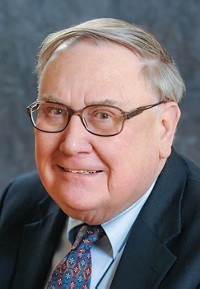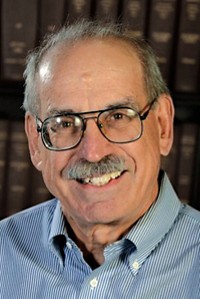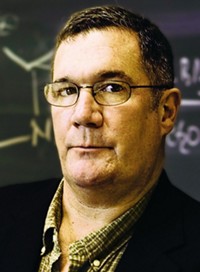Advertisement
Grab your lab coat. Let's get started
Welcome!
Welcome!
Create an account below to get 6 C&EN articles per month, receive newsletters and more - all free.
It seems this is your first time logging in online. Please enter the following information to continue.
As an ACS member you automatically get access to this site. All we need is few more details to create your reading experience.
Not you? Sign in with a different account.
Not you? Sign in with a different account.
ERROR 1
ERROR 1
ERROR 2
ERROR 2
ERROR 2
ERROR 2
ERROR 2
Password and Confirm password must match.
If you have an ACS member number, please enter it here so we can link this account to your membership. (optional)
ERROR 2
ACS values your privacy. By submitting your information, you are gaining access to C&EN and subscribing to our weekly newsletter. We use the information you provide to make your reading experience better, and we will never sell your data to third party members.
Synthesis
ACS Award In Organometallic Chemistry
Sponsored by Dow Chemical Co. Foundation
by Stephen K. Ritter
January 31, 2011
| A version of this story appeared in
Volume 89, Issue 5
“When you think Wolczanski, think bulky!” That lab slogan says a lot about the chemistry of Cornell University’s Peter T. Wolczanski, who is being honored for his pioneering work on low-coordinate and multinuclear transition-metal complexes in which steric features of the ligands figure prominently.
In many of Wolczanski’s key contributions, bulky tri-tert-butylmethoxide (tritox), tri-tert-butylsiloxide (silox), tri-tert-butylsilamide and -imide, and alkoxyalkylphosphine ligands play critical roles. Major areas of focus using these ligands in his lab include the activation of small molecules such as O2 and CO; related C–H, C–C, and C–X (X = heteroatom) bond cleavages in larger molecules; and cooperative reactivity between early and late transition metals.
For example, the bulky ligands enable the synthesis of some highly reactive molecules, such as Ta(silox)3, which is a low-valent species capable of cleaving the strong C–O bond to form an oxide and a dicarbide. Tantalum hydride complexes containing silox ligands also facilitate C–O scission and C–H and C–C bond-forming reactions. A related ditungsten complex has further been shown to cleave C–O, forming a ditungsten carbide linkage. These reactions model crucial steps in the important Fischer-Tropsch synthesis of hydrocarbons from synthesis gas.
Perhaps Wolczanski’s most fundamental discovery is that the higher density of energy states in second-row transition metals relative to third-row species affords generally swifter reactivity.
“Wolczanski’s synthetic talents and mechanistic approach, in combination with a rare ability to understand electronic structure, sets him apart,” comments John E. Bercaw of California Institute of Technology. “He has thus been able to attack a diverse array of problems in organometallic chemistry, ranging from physical organometallic chemistry to aspects of stoichiometric transformations critical to our understanding and control of homogeneous and heterogeneous catalysis. His work is consistently characterized by exceptional depth of thought and rigor. Wolczanski is widely viewed as a true scholar of organometallic chemistry.”
Wolczanski, 56, received a B.S. degree in 1976 from Massachusetts Institute of Technology and a Ph.D. degree in 1981 in Bercaw’s group at Caltech. He joined the faculty at Cornell in 1981 and currently is the George W. & Grace L. Todd Professor of Chemistry.
Among his accolades, Wolczanski was an Alfred P. Sloan Foundation Fellow for 1987–89, and he was elected to the American Academy of Arts & Sciences in 1999. He served as chair of the Gordon Research Conference on Organometallic Chemistry in 2002 and as chair of the ACS Inorganic Chemistry Division’s Organometallic Subdivision in 1995. He has served on the advisory boards of the ACS journals Organometallics and Inorganic Chemistry, as well as on the technical advisory boards for Dow Chemical and Los Alamos National Laboratory.
Wolczanski lives with his family “in a wooded area, where we fight a never-ending battle against the evil forces of nature—that is, deer and weeds,” he says. He spends his leisure time on the golf course with his children or driving all over New York state to watch them play hockey.
Wolczanski will present the award address before the ACS Division of Inorganic Chemistry.






Join the conversation
Contact the reporter
Submit a Letter to the Editor for publication
Engage with us on Twitter